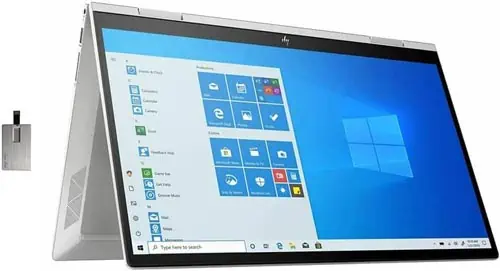Ever find yourself worried if your M1 MacBook Pro with 8GB of RAM will survive your entire medical degree, or if it’s time for an upgrade?
Well, Let me tell you a story of a successful tech upgrade! One of my devoted followers faced the same confusion before taking admission in medical school. With my expert guidance, I prescribed an upgrade to 16GB of RAM, and his laptop transformed into a study powerhouse. Now, my follower is excelling in his medical degree with ease.
So, with years of laptop expertise, I will give you a good information regarding any query you have in a few seconds. Stick to me!
How Much RAM does a Medical Student Need?
You would definitely relate to the thought: How much RAM does a medical student need? Choose 8GB for most tasks but 16GB or more for resource-intensive work to avoid interruptions and slowdowns.
As a medical student, you need a laptop with sufficient RAM to handle tasks like note-taking, medical imaging software, and multitasking.
How to Pick the Best Laptop for Medical School Students in 2024.
If you want to bring an excellent laptop to your study table, then stick to your sofa and keep reading. With my medical experience and a site’s (UAMS) information, the following are the laptop requirements for medical students!
PC:
MAC:
Chromebooks for Medical Students
I don’t really suggest Chromebooks for medical students because of some limited functionality. I prefer going for a laptop that is a perfect mix of performance, compatibility, and usability.
But if you believe that you can do most of your work using online tools and cloud services, a Chromebook could be a smart and efficient choice.
Top 5 Laptops for Medical Residents
Here are the top laptops recommended for medical residents:
Our Top Pick:
The most affordable and best laptop for medical Residents is the Dell XPS 13.
FAQs
Why is Dell XPS 13 the best laptop for medical residents?
The Dell XPS 13 is a sleek and lightweight laptop with a durable aluminum chassis and high-resolution display, making it ideal for medical professionals. The best part is its powerful processors and sufficient RAM. Also, the laptop’s comfortable keyboard and responsive touchpad make it easy to take notes and interact with the device efficiently. With various ports, including USB-C and Thunderbolt 4, connecting to multiple devices and peripherals is easy.
Is MacBook Air good for medical students?
If your budget allows, then Yes, a MacBook Air can be a good choice for medical students, especially if you’re looking for a reliable and high-quality laptop that can handle various tasks related to your studies.
MacBook Airs are a popular choice for medical students because of their high-quality build, great performance, long battery life, clear display, and compatible ecosystem.
Windows or Mac for medical school?
Well, both Windows and macOS can be suitable options for medical studies. If you’re already familiar with Windows or Mac, you may find it easier to navigate and work efficiently on a laptop. Other than that, consider your budget before buying.
How Much RAM Does a University Student Need?
A university student needs 8-16GB of RAM for general tasks like research, document editing, and web browsing. For demanding activities, such as graphic design or programming benefit from 16GB or more.
Final Thought:
To enjoy a good computing experience while studying, having sufficient RAM is crucial. The amount of RAM recommended for medical students would depend on the tasks and applications they will be using. For basic usage, 8GB would be great, but for more intensive work, 16GB or more would be necessary. I hope this clarifies any confusion.



